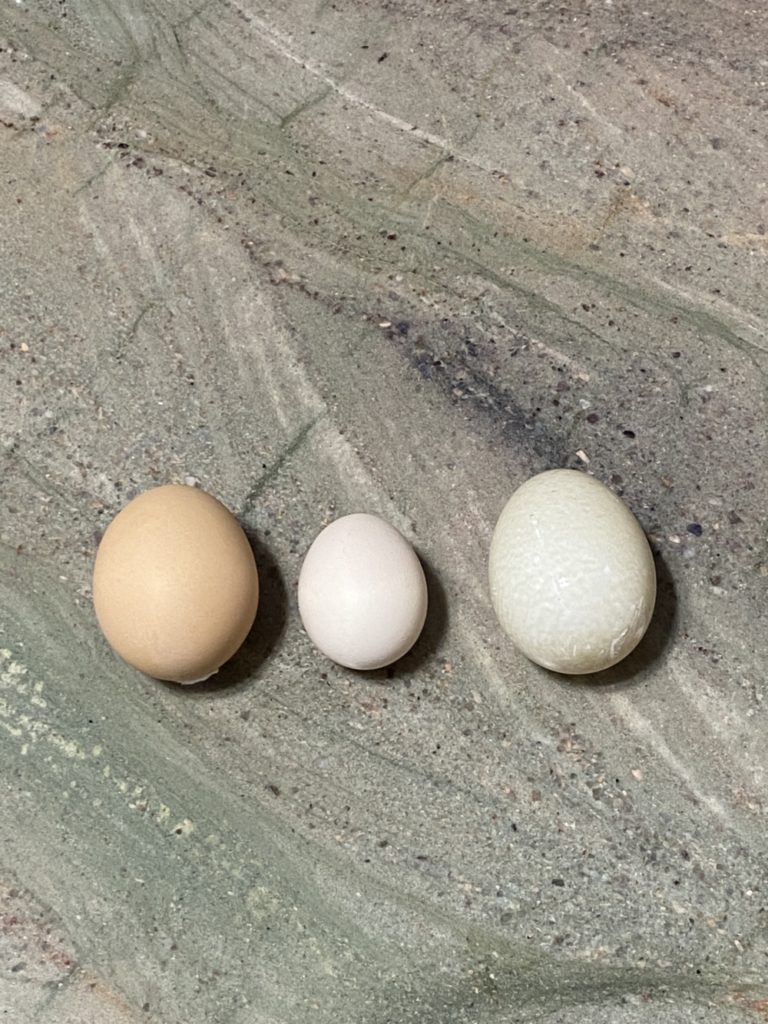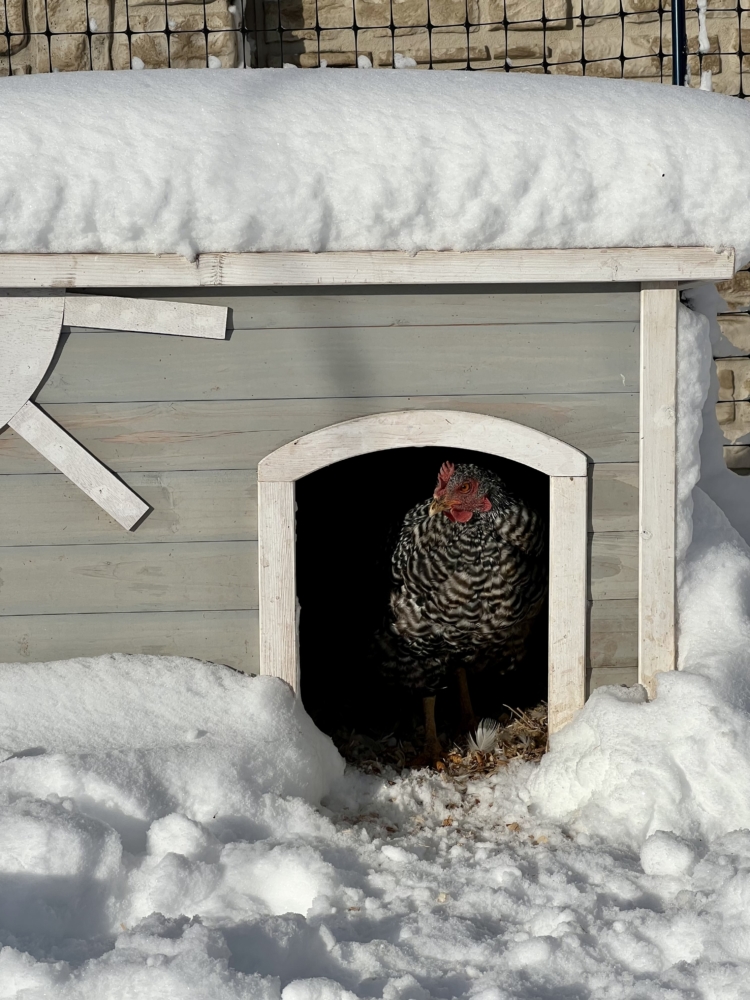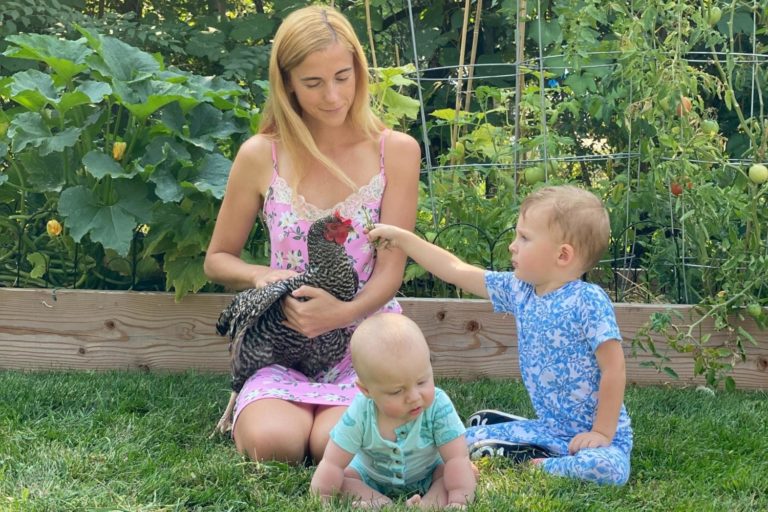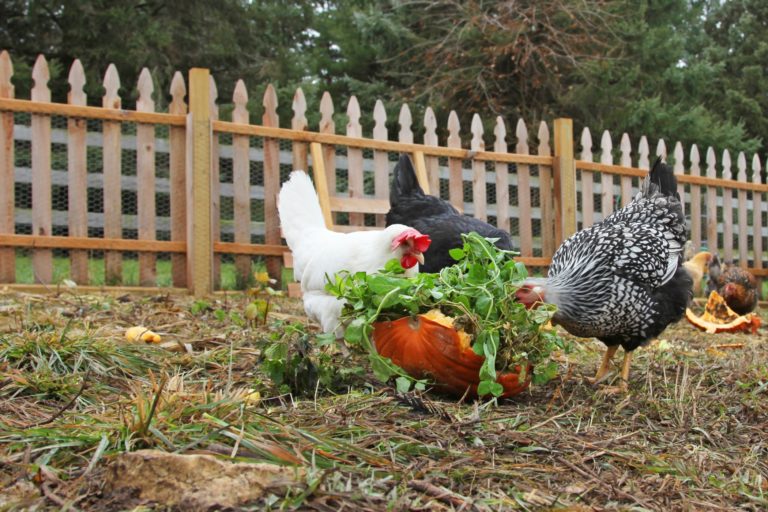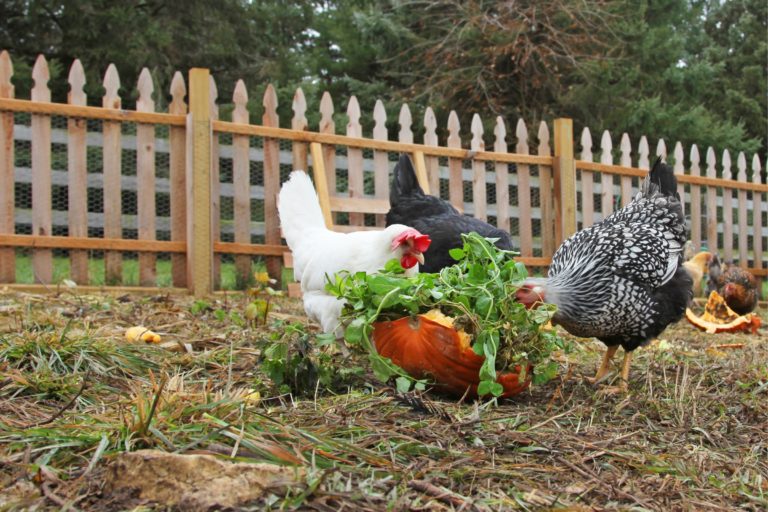Raising Backyard Ducks: A Beginner’s Guide
If you’re interested in raising backyard ducks, you’re in the right place!
It can be incredibly rewarding to raise ducks in your backyard, especially if you’re raising them for eggs or meat.
In this beginner’s guide, we’ll tell you everything you need to know about raising backyard ducks so you can get started on your journey.
About Backyard Ducks
Backyard ducks are considered to be any domesticated ducks that are raised by individuals or families in their backyards.
These ducks can be kept for many reasons including:
- Meat
- Eggs
- Pet companionship
- Additions to a pond or garden
There are many different breeds of backyard ducks that you can keep.
The most common backyard duck breeds include:
- Mallards
- Rouens
- Pekins
- Khaki Campbells
- Welsh Harlequins
- Cayugas
Each of these duck breeds is incredibly unique in color and personality. They also have slightly different care requirements and some may lay more eggs than others (such as the Pekin and the Welsh Harlequin).
If you’re interested in raising ducks for a specific purpose, you should look up each of these breeds and determine which is best for you and your family.

Why You Should Raise Backyard Ducks
There are many reasons why you may want to raise backyard ducks. One of the biggest reasons is for eggs.
Ducks lay eggs on a regular basis, and the eggs are generally larger than chicken eggs and have a richer flavor. Many people enjoy having a steady supply of fresh eggs from their own backyard as it saves them time and money at the grocery store.
Another reason why you may be interested in raising backyard ducks is for meat. Those who eat duck say that duck meat is actually leaner and more flavorful than chicken meat, which has led some people to raise their own free-range ducks to eat throughout the year.
Perhaps you’re not interested in eating your duck or anything that comes out of it – that’s okay too! Lots of people choose to raise backyard ducks just because they want them as pets.
Ducks are incredibly friendly and entertaining to watch as they swim and waddle around your yard. They are also natural foragers and can help control any pests in your yard, which is a huge benefit to keeping them.
Though there are lots of benefits to keeping ducks, you should keep in mind that raising ducks isn’t always easy and requires a lot of time and effort. If you don’t feel you have the time, money, or energy to give to your ducks, you may want to reconsider getting a backyard full of them.
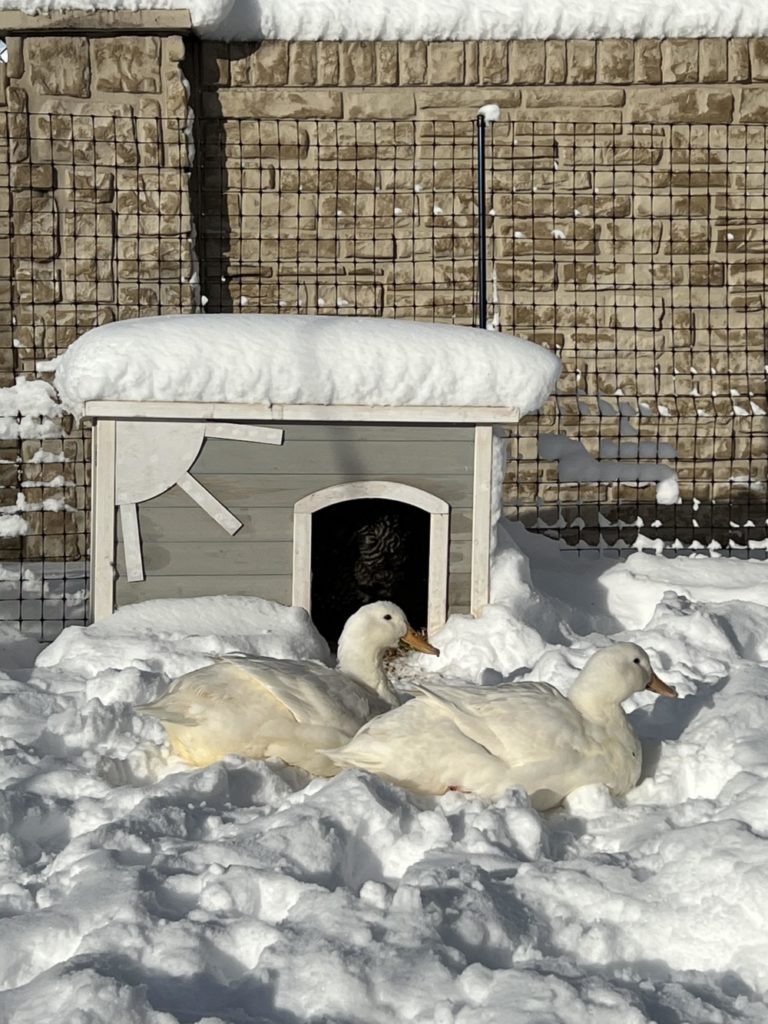
Choosing Between Ducklings and Adult Ducks
If you’re new to raising backyard ducks, you may be wondering if you should get ducklings or adult ducks to start off with.
Ultimately, the choice depends on your personal preferences and the resources you have to give both ducklings and adult ducks.
The biggest tradeoffs are in cost and care. While ducklings are typically much cheaper to purchase than adult ducks, they take more money and effort to raise into adults.
You’ll need heating lamps and special duckling food to raise them, for example. You also need adequate space in your home to raise the ducklings, as they will be too small to leave outside without becoming easy prey!
If you’re willing to commit to the time, money, and energy required to raise ducklings, it can be an extremely rewarding experience. Baby ducks tend to bond with humans more easily than adults, so raising them yourself can result in adult ducks that are more accustomed to human interaction.
Finally, consider the purpose of your ducks. If you want ducks purely for eggs or meat, it may be more cost-effective to buy ducks that are already fully grown and laying eggs.
However, those that want them both as pets with egg benefits may be interested in raising them to see the life cycle of a duck. It can be incredibly educational for families with children as well.
How to Raise Backyard Ducks
Below are some basic tips on raising backyard ducks from the environment to veterinary care.
Housing and Environment
Since your ducks will be outside, they need a protective environment that keeps them safe from any predators in your area. One housing example is a coop or hutch that is elevated off the ground, with a fenced-in outdoor area for them to forage and swim.
The coop should have a dry and warm area for the ducks to sleep in and a nesting box for laying eggs. The size of the coop will ultimately depend on the number of ducks you plan to keep. The more ducks you have, the larger a coop you will need!
It is also important to keep the duck’s housing clean and well-ventilated to prevent the spread of disease. Make sure you clean out any poop, old food, or wet bedding regularly to keep your ducks healthy.
Don’t splurge on a coop instantly though – my ducks prefer to sleep under the chicken’s coop.
A small pond or wading pool should also be provided for ducks to swim in, and a fenced-in area to protect them from predators and to contain them. Ducks need access to water to clean, swim, and forage for food.
Keep in mind that ducks can get messy when they swim, so you should put this pond or pool in an area with a lot of space where it is safe to get wet.
Remember that ducks also like to waddle around and explore like other backyard animals, so they need space to wander and forage as well. Make sure you have at least a decent amount of land to give them space to explore without running into your neighbor’s yards!
Food and Water
Though ducks may naturally forage for certain foods, you will also have to provide them with additional feed.
The most common food you will give your ducks is commercial duck feed. This is a specially formulated feed that contains all the necessary nutrients for ducks, including protein, carbohydrates, and essential vitamins and minerals.
Your ducks may also enjoy healthy kitchen scraps such as fruits, vegetables, bread, and cereal. Keep in mind that bread may be tasty, but doesn’t offer much nutritional value to your ducks. This should be offered as a treat and not a regular meal like duck feed and vegetables.
Ducks also need high amounts of protein from foods like crickets, mealworms, and small fish. While they may forage for some insects on their own, giving them these foods will ensure they’re getting the nutrients they need.
Finally, your ducks will need something called grit to help them digest their food. Grit is essentially like small rocks or stones, and you can incorporate this into your duck’s food regularly. You can find grit at your local feed store when you get your duck feed.
Common Duck Health Issues
Like with any animal, your ducks may become sick at some point. Some of the most common conditions that can affect your ducks include:
- Parasites
- Foot problems
- Avian influenza
- Vitamin deficiencies
- Egg binding
- Predator attacks
- Respiratory infections
Parasites such as worms and mites may infect your ducks if they are left in a dirty coop with old food and water. They can cause diarrhea, weight loss, and anemia in your ducks if left untreated.
These poor living conditions can also cause respiratory infections, which can lead to breathing difficulties and loss of appetite. If that weren’t enough, poor housing conditions can also cause foot problems such as bumblefoot, a bacterial infection that can cause lameness.
Beyond your ducks’ housing, you should make sure they don’t interact with wild birds too often to prevent them from catching avian influenza. This is a serious illness that could even result in your flock getting culled. Symptoms include respiratory difficulties, fever, and nervous system disorders.
If you plan to get ducks for eggs, keep an eye out for egg binding. Egg binding occurs when a female duck is unable to lay an egg because it is stuck in her oviduct. This can cause extreme pain and discomfort and can even result in death if not treated in time.
Finally, predator attacks can certainly land your duck at a veterinarian. You should always make sure your ducks’ coop is safe from predators so they can’t be attacked at night. However, if they are attacked during the day, you may end up with a duck that needs treatment for bites and scratches if they are not killed by the predator.
If you ever suspect your backyard ducks are sick, contact a licensed veterinarian immediately. You should find a vet that specializes either in avian species or barn animals that is familiar with various duck health conditions. Ideally, you should find a vet that specializes in backyard ducks before getting your ducks so you know where to go to get treatment at a moment’s notice.
Backyard Duck Behavioral Issues
Ducks, like any other animals, can have a variety of behavioral issues. Some common ones include:
- Aggression
- Feather picking
- Broodiness
- Lack of socialization
- Fearfulness
Ducks that are not socialized from an early age may display behavioral issues such as fearfulness and aggression. Fearfulness may exhibit itself in running, hiding, or becoming aggressive with humans when you try to interact with them. Handling your ducks gently and regularly can help reduce their fearfulness over time.
Ducks that become aggressive may lead to a number of issues. If they are aggressive toward humans, you could end up being bitten or scratched during an attack. If they are aggressive toward other ducks in your flock, you could end up with several duck injuries and other ducks becoming fearful and aggressive.
There are many reasons why your ducks may become aggressive. If your ducks were previously handled as ducklings and have not displayed aggression before, this could be a sign of something more distressing in your ducks.
Ducks are sensitive to stress and may act out if they are sick or uncomfortable. Make sure your ducks are healthy, have enough space, and have a healthy diet to determine potential causes behind your ducks’ sudden aggressiveness.
Over time, you may notice other behaviors in your ducks such as feather picking and broodiness. Feather picking occurs when your ducks are stressed and pluck their own feathers, which can be a sign of poor housing or diet.
If your female ducks are “broody,” it means they want to hatch the eggs they lay, and may become aggressive when you try to take their eggs for breakfast. This can be a result of hormonal changes or changes in their nesting site.
Try to keep their enclosure consistent and give your ducks space if they begin to act broody. You do not want to stress them further and face aggression from them when you go to retrieve eggs in the morning.
In general, most duck aggression concerns can be traced back to issues in their environment. Always check their coop, diet, water, health, and space before determining if it is simply a personality issue.
Other Duck Care Concerns
As mentioned earlier in this guide, raising ducks isn’t always easy. Ducks are known to be messy and will splash water all over your yard and leave droppings as they waddle.
These droppings may attract certain insects and can also smell unpleasant, so keep this in mind before deciding to throw a bunch of ducks in your yard.
Raising ducks can be rewarding, but you should make sure you’re ready for the full commitment of raising them before you get them.
Make sure you have the space in your yard available to comfortably house ducks and that you have the money necessary to pay for their food and any veterinarian treatment you may need over time. The healthier you can keep your ducks, the happier they’ll be!
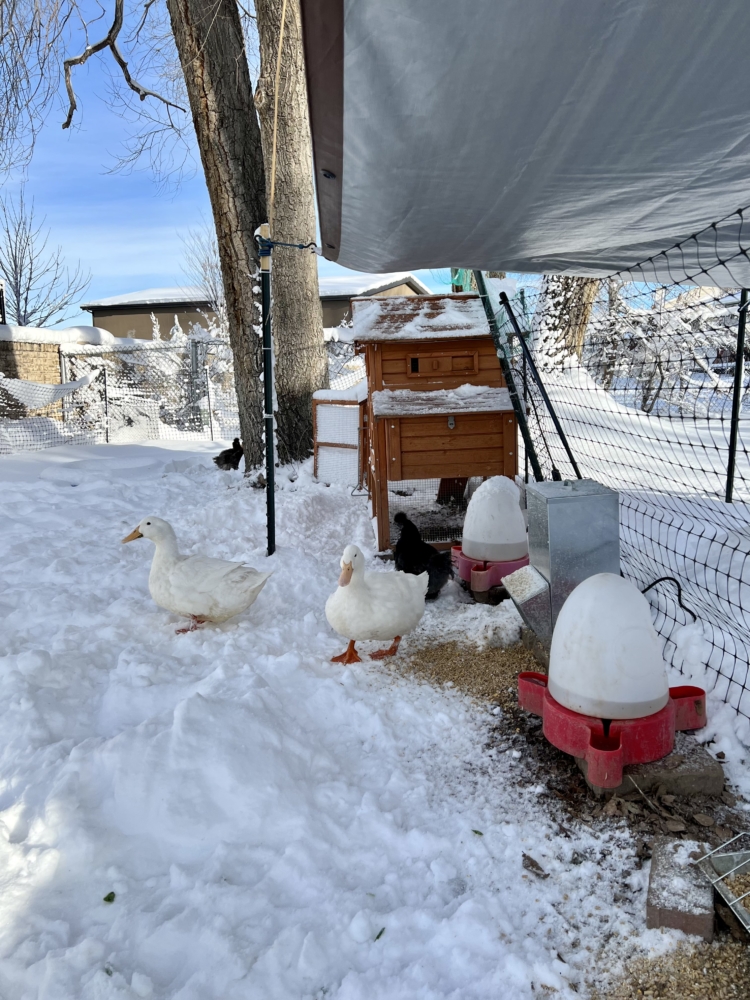
Ducks can be lots of work, but they can also be lots of fun. As long as you follow this beginner’s care guide, you should be ready to raise your family of ducks with little to no issues. Have fun with your new flock!


